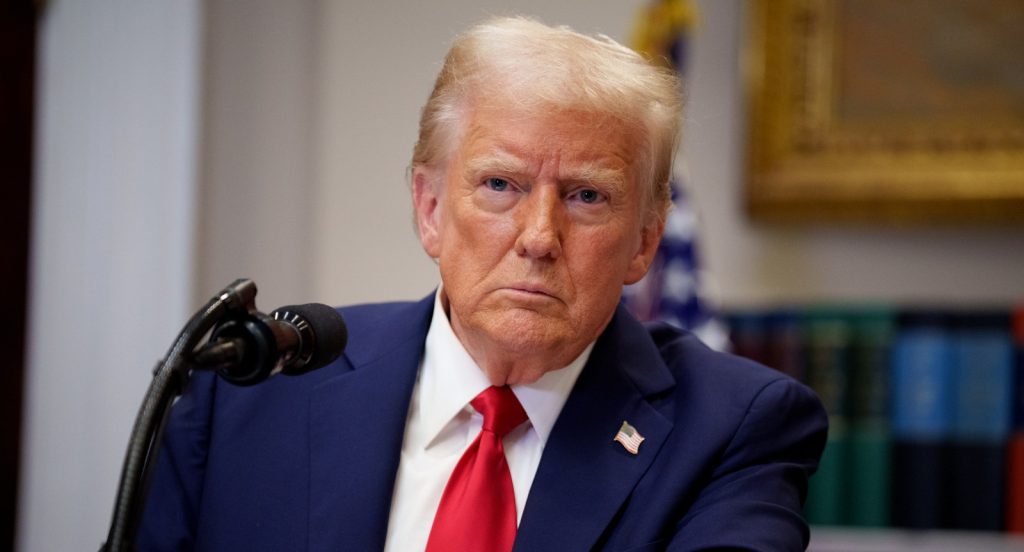
Ambassador Troy Fitrell, the top U.S. diplomat overseeing African affairs under former President Donald Trump, is set to retire next month after more than three decades of service in the U.S. Foreign Service. He will be succeeded by Jonathan Pratt, the Bureau of African Affairs’ Principal Deputy Assistant Secretary.
Fitrell to Step Down After 30+ Years of Diplomatic Service
The State Department confirmed Fitrell’s departure in a statement this week:
“After a long and distinguished career, the Department of State’s Bureau of African Affairs Senior Bureau Official Ambassador Troy Fitrell is retiring as planned,” said a spokesperson.
“The Bureau of African Affairs Principal Deputy Assistant Secretary Jonathan Pratt will step into the Senior Bureau Official role after Ambassador Fitrell’s departure.”
Fitrell has served as the acting head of the Bureau of African Affairs, a key position that remains unfilled by a Senate-confirmed appointee. He previously served as U.S. Ambassador to Guinea, and held posts in Ethiopia, Mauritius, and at the Offices of Western and Southern African Affairs.
In a recent statement reflecting the Trump administration’s evolving foreign policy strategy, Fitrell emphasized a shift in U.S. priorities in Africa—from a model focused heavily on development aid to one centered around commercial engagement and strategic partnerships.
Jonathan Pratt to Take Over African Affairs
Jonathan Pratt, who will take over the bureau’s leadership, brings his own extensive diplomatic resume. He most recently served as U.S. Ambassador to Djibouti from 2021 to 2023 and previously held assignments in Pakistan, Sudan, and Angola.
Pratt’s experience positions him to navigate the continent’s complex political and economic dynamics, particularly as the Trump administration pushes for stronger commercial ties and increased U.S. presence in key regions.
High-Level Resignations Highlight Foreign Policy Shifts
Fitrell’s retirement marks the second high-profile departure from the Trump administration’s foreign policy leadership in recent weeks.
Admiral Alvin Holsey, commander of the U.S. Southern Command, has also announced his retirement, less than a year into what is typically a three-year term. Holsey has overseen an expanded military campaign in the Caribbean Sea, where the U.S. has deployed roughly 10,000 troops and launched aggressive operations targeting alleged drug trafficking and terrorism threats.
While the Pentagon has offered no official explanation for the early departure, two U.S. officials speaking on condition of anonymity cited policy tensions, particularly around the administration’s strategy on Venezuela. Holsey reportedly expressed reservations about the scale and scope of the operations.
Clandestine Ops and Rising Military Presence in the Caribbean
Recent reports by The New York Times suggest that the Trump administration authorized clandestine CIA operations in Venezuela. President Trump confirmed the existence of such missions and hinted that strikes inside Venezuela were under consideration.
Defense Secretary Pete Hegseth, in a brief statement, expressed gratitude for Holsey’s service:
“On behalf of the Department of War, we extend our deepest gratitude to Admiral Alvin Holsey for his more than 37 years of distinguished service to our nation as he plans to retire at year’s end.”
Despite the retirement announcement, military build-up in the region continues. According to Pentagon sources:
- 10,000 U.S. troops are deployed in the Caribbean, primarily in Puerto Rico
- 2,200 Marines are stationed aboard amphibious assault ships
- The U.S. Navy has deployed eight warships and one submarine to the region
The Trump administration has framed the campaign as a counter-narcotics and anti-terrorism initiative, citing national security threats linked to rising U.S. overdose deaths.
Leave a Reply